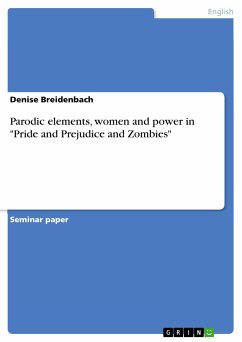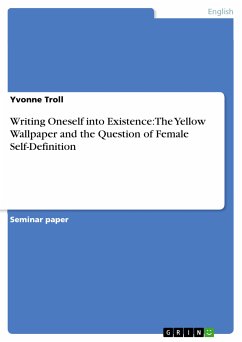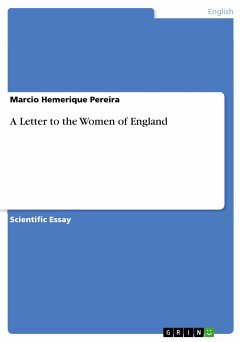Seminar paper from the year 2013 in the subject English Language and Literature Studies - Literature, grade: 1.0, University of Kassel (Institut für Anglistik und Amerikanistik), course: Proseminar "Jane Austen", language: English, abstract: "Pride and Prejudice" certainly is one of the best-known and most frequently criticised works by Jane Austen. Its ironic opening lines “It is a truth universally acknowledged, that a single man in possession of a good fortune, must be in want of a wife” already hint at some of the novel’s topics, such as the omnipresence of marriage in female biographies and the constructions of power through wealth. But what happens if a 21st century writer combines the original plot of "Pride and Prejudice" with popular aspects of the Eastern culture? The novel "Pride and Prejudice and Zombies", written by Seth Grahame-Smith and published in 2009, does so by partly adopting the original text and by inserting (often violent) parts of modern popular culture. The half-conserving, half-comic transformation of the well-known opening lines into “It is a truth universally acknowledged that a zombie in possession of brains must be in want of more brains” is only one of the numerous means of parody the narrative makes use of, playing on the contrast between its original as an appreciated classic and the frivolous tone of its parody. This paper will show that "Pride and Prejudice and Zombies" is a parody. It will identify and discuss the elements and strategies that are typical of parodies. What gets parodied and how? What effect does this create? These are the central questions this paper seeks to answer. First of all, the approaches of several post-modern theorists such as Linda Hutcheon and Simon Dentith will serve as basic definitions in order to explain the theoretical aspects and properties of parodies. Important characteristics such as the paradox nature of parodies and the theory of encoding and decoding will be taken into account. The second part will consist of a close analysis of parodic strategies in "Pride and Prejudice and Zombies", focusing not only on the formal characteristics of this parody, but also on some features of both 18th century society and the style of the narrative found in "Pride and Prejudice" that are most prominently parodied.
Bitte wählen Sie Ihr Anliegen aus.
Rechnungen
Retourenschein anfordern
Bestellstatus
Storno









